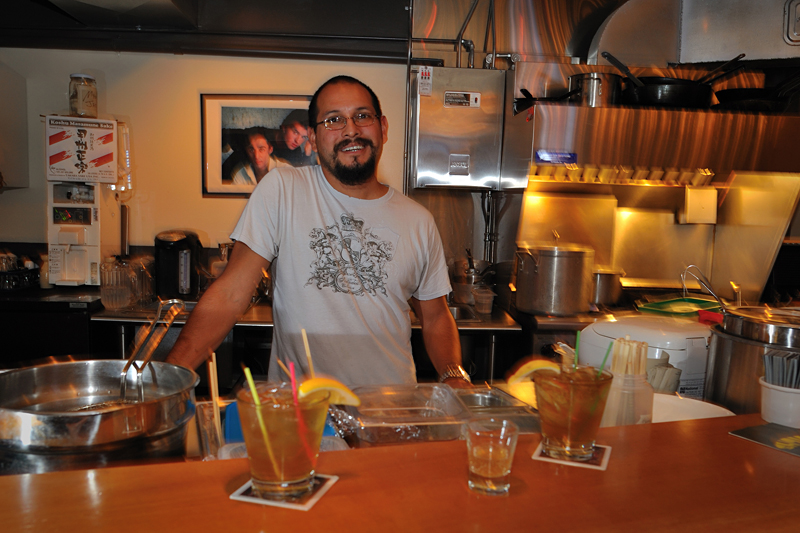If you are gay and want to get married, the state Supreme Court races are particularly important, what with the fight for equality increasingly being waged before judges. Unfortunately for gay and lesbian couples, only one spot on the state’s high court bench will be decided in the general election–the race between incumbent Richard Sanders and challenger Charlie Wiggins. And neither is very friendly to their cause as both men proved today at a candidate forum hosted by the Greater Seattle Business Association, aka the gay chamber of commerce.Moderator Deborah Brandt wasted no time in cutting right to the chase: should gays and lesbians be considered a protected class that cannot be denied rights like, say, marriage. The controversy-loving Sanders (who famously yelled “tyrant!” at then-U.S. Attorney General Michael Mukasey during a 2008 appearance) took the question first. “I think one of the criteria [for protected class status] is immutable characteristics which individuals cannot control,” he replied, noting that race falls into that category. Apparently Sanders still believes being gay is a choice. Wiggins, who implied to the Seattle Gay News in July that he would have voted with the majority in Andersen v. King County, the 2006 Supreme Court ruling upholding a state law limiting marriage to heterosexual couples, was less direct. He didn’t back down from his statements to SGN, but he also to the recent ruling by California federal judge Vaughn Walker overturning Prop. 8, saying it suggests that the subject needs to be examined more closely.”I think it’s a difficult question,” Wiggins concluded, somewhat unhelpfully.In the time allocated for the two men to respond to each other on the topic of gay marriage and protected classes, they balked, instead fighting over Sanders’ famously pro-defendant record in the state high court. Wiggins claimed 94 percent of Sanders’ opinions were in favor of the criminally accused. Sanders called that wrong, saying that closer to 60 percent of his votes were in favor of defendants.Wiggins latched onto the semantics pointing out that he had said opinions, not votes. “There’s a problem when a judge doesn’t listen,” he quipped. What that has to do with gay rights, I have no idea.Sorry gays and lesbians, looks like this court won’t be a particularly friendly place this time around regardless of who wins in November.
More Stories From This Author
New state legislation fights catalytic converter theft
Governor Jay Inslee signed a bill on March 26 adding new regulations to the purchase and sale of catalytic converters…
By
Benjamin Leung • April 8, 2024 1:55 pm
Kirkland officer steps down following investigation into bikini barista incident
A Kirkland police officer accused of exhibiting odd behavior toward bikini barista employees while using a city-owned vehicle has resigned…
By
Cameron Sires • April 5, 2024 10:09 pm
KC Sheriff’s Office sues over Burien encampment ban
Office of Law Enforcement Oversight director calls Burien’s ordinance “unconstitutional.”
By
Cameron Sheppard • March 18, 2024 12:32 pm






